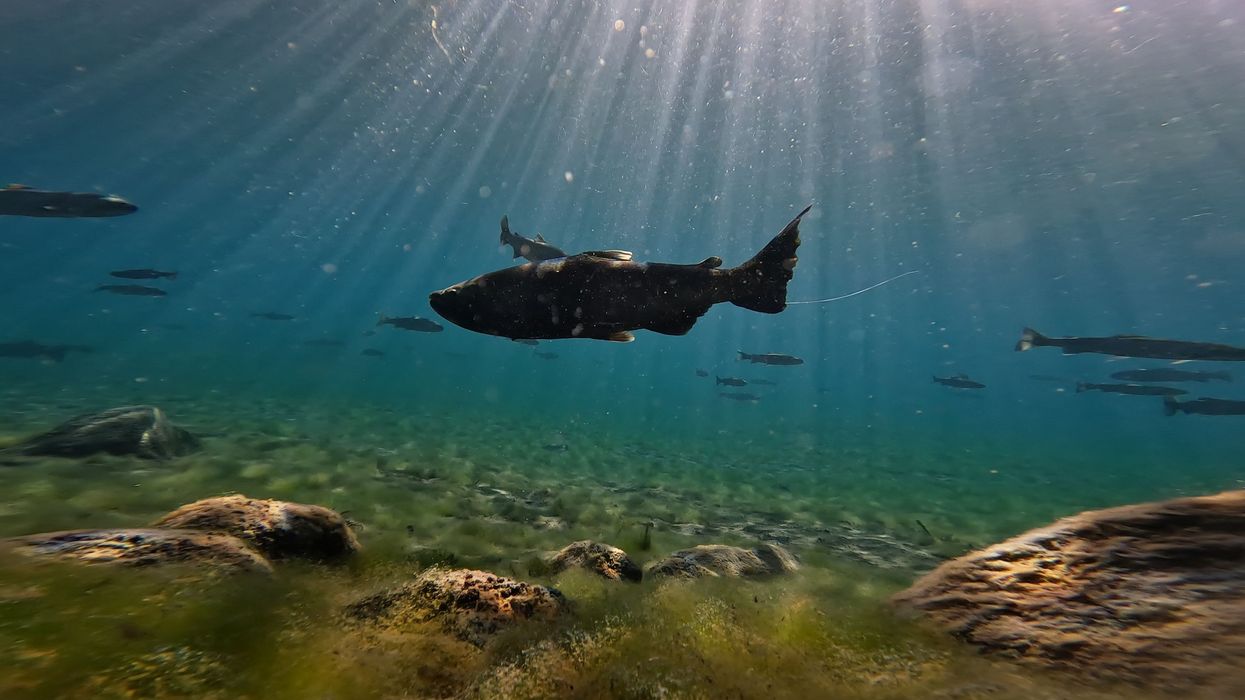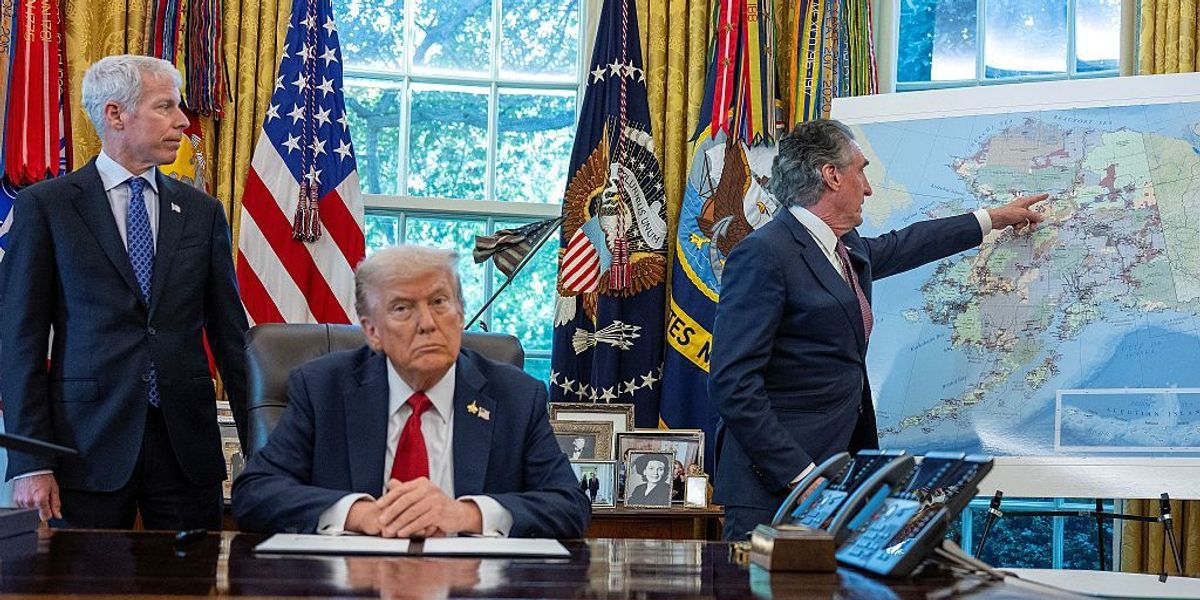Amy Bowers Cordalis (ABC): Oh, I love that question. My first memory of wild waters is not even a visual memory, it’s an embedded experience. My family is from the village of Requa at the north side of the mouth of the Klamath River, and our ancestral home is an old Yurok traditional redwood plank house. And that’s where I spent most holidays and that’s where we’d go and stay, that was home base during fishing season.
I grew up just running around the village area and grandma’s house, and it sits overlooking the Klamath estuary, the mouth of the Klamath River, and the ocean. And so, my first connection with wild water was just being in that place surrounded by different forms of water; there’s the ocean and there’s always these extremely powerful waves at the mouth of the Klamath. And then you go inland, in the mouth, and that’s a really powerful exchange of different kinds of water, of salt water and fresh water merging. And then you’re in the estuary and it’s just like deep and wide, but then it’s right in the middle of the redwoods. And so often there is fog and mist surrounding you.
I was on a Yurok Fisheries tribal boat looking at the dead fish, and I just felt like my great grandma who had passed away, 20 years before, came to me and was like, "You got to stop this. We can’t have this anymore."
DH: It’s amazing when you stand on the bluff at the mouth of the Klamath and you look north and south and it’s forested as far as you can see, and you think you’re in the most populous state in the nation? It’s just hard to grasp how much of it is still wild. Of course there’s been decline over time. Before we get into that, let’s ask a bit more of your history.
ABC: Well, I grew up fishing. I grew up hearing the family stories about all these fights just to be on the river, right? Just to sort of survive colonization. And I write about those in the book and so I just felt like I had to get all this out in a narrative format so that people could know this history, but also share this experience with me.
I heard about the family’s Supreme Court case, the fish wars, and how the family fought back against federal marshals armed with machine guns and how we, even, like my dad, who’s one of the kindest humans I know, he drove around with a machine gun in his trunk because they weren’t safe. I grew up hearing these fish stories, like about catching lots of salmon in one night and how much fun and all the hard work it was. And the role of salmon and the value of salmon in feeding our families and continuing our way of life. And, so I just had a deep, deep love for the river, for our culture, for our salmon. And then in 2002, tragedy hit. And you know, people have heard about the Klamath River fish kill. It was the largest fish kill in American history.
Over 70,000 adult Chinook salmon died in the Klamath River on the lower part of the river within the Yurok Reservation. I was in college then, and I was home that summer when the fish kill happened working for the tribal fisheries (department). And my job that summer was to go and count salmon harvested by Yurok tribal members. And so, I spent the whole summer up and down the river talking to the people. And then when the fish started dying, it was so deeply moving and profound. It was like we were under attack again. It was hard for all the Yurok families who depended on salmon for their livelihood, but also we as Yurok people have a duty to protect Yurok country and to protect our salmon. And so, I just felt compelled to try and do something to help.
I was on a Yurok Fisheries tribal boat looking at the dead fish, and I just felt like my great grandma who had passed away, 20 years before, came to me and was like, "You got to stop this. We can’t have this anymore." And then my next thought was, you gotta go to law school. So, I went to law school and the whole goal was to get a legal education and be in a position to try to help my tribe… I went out to Colorado for law school and was able to work at the Native American Rights Fund for a period of time. They are the largest and oldest legal defense fund for tribes.
And then eventually I was called home. I’ll never forget a call I got from the then-Yurok chairman saying, "Amy, it’s time." And he asked me to be general counsel, and I had two little kids. My second son was about a year old, and I thought, "Oh, the timing’s not right, I got young babies, how am I gonna do all this?" And also, things on the river were really, really bad. That was 2016. The river was just getting sicker and sicker and the dam removal agreements were not certain. Things were just awful. And I just thought, well, this is what you’ve been training for. This is what you were called to do. So, I moved home and started that job and made arrangements so that I could work remotely a couple days and also take the baby to work.
DH: So, for those who haven’t yet read your book let’s go back a little. During the Gold Rush there was what California Gov. Gavin Newsom in 2019 apologized for, which was a (federal, state, and vigilante) genocide against California’s Native Americans. You fast forward and "cultural fire"—Indigenous fire setting for forest management and protection—was outlawed as arson. And then the fish wars of the 1970s and 80s (that Amy’s father was involved in) were about reasserting tribal rights or treaty rights to fish salmon on the rivers.
Fast forward and I wrote about the 2002 fish kill which was more like a fish assassination when Gail Norton, the secretary of Interior under George W. Bush, opened the floodgates for alfalfa and potato farmers in eastern Oregon against the science advice that had been put forward by the National Oceanic and Atmospheric Administration. And that resulted in this disaster, the salmon kill (downriver), but also inspired the growth of the tribal movement and some environmental groups, who did what?
ABC: Everything we could to save our culture and ourselves. We have a myth that says if the salmon die, so to do the Yurok people, because there’d be no reason for Yurok to be here because we are so deeply connected to them, you know, the salmon and the river, and our sole purpose on Earth is to steward them.
So, we fought with that kind of veracity and that kind of determination, and failure was not an option. After the fish kill a whole new generation of Indigenous peoples from the Klamath were launched into the fight. And you know what was interesting about that time was more and more non-Indians, NGOs, other folks were also compelled by the fish kill. And the fish kill was tragic, it was awful. And I write about how the fish kill started (on) the last day of a world renewal ceremony that the tribe hadn’t done in 100 years. And the whole point of that ceremony is to bring about world renewal and restore balance between humans and the natural world.
And so, there’s one way of looking at this, where it was like that ceremony really did its job. You know, the medicine was really strong and although we would never wish for the salmon to die in that way, their deaths launched the undammed, the Klamath movement, and showed the humans like, "Hey, look, you keep up this regime of out-of-balanced management of the system, it’s gonna collapse."
Natasha Benjamin (NB): So, can you describe to us just what happens to a river when you put up dams and why all these fish died?
ABC: There were a few contributing factors to the fish kill and so the order by then Vice President (Dick) Cheney to divert an extreme amount of water from the upper part of the basin in southeastern Oregon to support agriculture (and try and win Oregon in the 2004 presidential election), what that did was cause water flows at the bottom of the river, 250-300 river miles lower by my village, to be the lowest (water levels) in history. So, nothing about this was natural.
And this year, the salmon were bigger and beautiful and stronger than I’ve seen in years. I mean, they were just fierce.
Also, a contributing factor was the dams. The Klamath dams were built right in the middle of the Klamath River without fish ladders. So first off, you know, they’re blocking salmon habitat and salmon are on a mission. They will die trying to get to their spawning grounds. And so that’s what they would do at Iron Gate Dam is they would just hit their heads on the dam until they died. And if you ever went to Iron Gate, there was evidence of this. There were salmon carcasses all over. I mean, it was eerie. It was like a salmon graveyard.
But also, what was happening with the Klamath dams was that all of the agricultural runoff was coming down into the reservoirs behind the four dams. It (the upper Klamath) was former wetlands. They converted 200,000 acres of wetlands into agricultural lands. And so, what happens is that when you put chemicals on the land, it goes into the surface water and (into) the Klamath, and then that would pool behind the reservoirs and the water would get really polluted and it would get really hot. You’d have toxic blue-green algae blooms every year, and then that water would go down the entire Klamath River and poison it, from top to bottom. Then on top of that, the other thing that dams do is they block the natural sediment that would go down a river. And so, on a healthy river bed, you have lots of little, teeny rocks that help clean the river bar.
So you block that, and then you have just hard rock at the bottom of the riverbed. And what was happening under these bad conditions, is you would have these little worms (parasites) that would attach to those boulders at the bottom of the river and that would (then attach to fish and) spread fish disease. And that was causing the death of baby fish each year.
Also, behind the dams are these amazing cold water springs that cool the entire water system down the whole river. But it (the cold water) can’t get past the dams. It’s blocked under that hot, green, toxic (reservoir) water. So, all of those conditions were killing the river. By about 2010, over 90% of the Klamath salmon runs had been slaughtered. Like we were down to single digit percentages. So we had to do something, or there’d be no future.
DH: So, you moved from confrontation to collaboration to actually take the dams down. Maybe you could talk about what it took to get people to understand that taking out the dams was good for everybody on the river.
ABC: It definitely started with the grassroots Indigenous peoples of the Klamath. And they are diehards, they are hardcore, and they are brilliant. They organized protests all over the world and, you know, had signs that said things like "Warren Buffet kills salmon," because he was the owner of it (PacifiCorp, the owner of the dams) for a time. What they did was raise awareness about the issue, and they demanded attention. They demanded that the stakeholders be accountable for how their company’s business practices were essentially killing their way of life.
We have this common life force that is is bringing us together and in a lot of ways making us more accountable for our actions.
And then what happened is there’s also a bit of good medicine here too. In 2007, PacifiCorp’s Federal Energy Regulatory Commission (FERC) license to operate the dams was set to expire. And so, in 2006, a relicensing proceeding started, which gave the tribes and our allies an opportunity to advocate for dam removal, and that really launched the whole movement. But the grassroots effort really set the stage and educated people in a way you couldn’t ignore. By the time that relicensing hearing started, everybody knew about the issue.
And then what was really cool in the FERC proceeding is that the tribe put forth its ancient, federally reserved fishing and water rights and said that these rights demand that these dams come out. And then we coupled those with energy law, the Federal Power Act, and environmental laws to basically make the case that the Klamath dams were so harmful to salmon, to the river’s overall health and Indigenous lifeways, that it was against the public interest to keep them in.
And then there’s this really powerful section of the Federal Power Act, Section Eight, that says if you’re on a river where there are salmon you have to have some kind of fish passage in order to get a new license. And so, what that meant in the context of the Klamath is that if PacifiCorp wanted to renew their license to operate the dams, they had to put in some kind of fish ladders. Then there was an economic analysis completed and it turns out that it was cheaper to remove the dams than it was to keep them in. And then we had our turning point.
(With the eventual dam removal ending in 2024) there was like earth and rock and rebar and all kinds of things, and we repurposed it or returned it to where it came from. And now we are restoring over 20,000 acres within the former reservoir footprint. We have planted over 19 billion native seeds through the whole area. And there will be restoration projects going on for at least 10 more years.
And one thing I’m really excited about is that we’re also seeing more collaboration between all the Indigenous peoples (four tribes) on the basin. My nonprofit Ridges to Riffles is facilitating an inter-Indigenous group that is advising all of this restoration work. So, we’re renewing the world and rebuilding it and decolonizing it. And that’s not just good for us, but that of course also creates ecosystems for all the little critters. And so, you go there now and it’s remarkable. And there are fish that, oh the fish. I mean the fish. We have a salmon phenomenon happening. It is a straight up phenomenon. Amazing. This year the fish have gone past upper Klamath past the (now removed) dams. They haven’t been there in 100 years, but they went past the dams, past Keno Dam, past upper Klamath Lake, and are now in the Williamson and the Sprague rivers (in Oregon). We always said we’re gonna open up 400 miles of spawning habitat, and we’re about there with all that.
NB: Within a year of taking down the dams?
ABC: So last year we took out the dams, and there was every kind of scientific study, I mean 20 years of studies about what was going to happen, and they never anticipated that this many salmon would come back this fast and that they would go back into those spawning grounds, you know, where they hadn’t been in 100 years.
And this year, the salmon were bigger and beautiful and stronger than I’ve seen in years. I mean, they were just fierce. They just fought and they were gorgeous. And so, I kind of knew like, these guys are gonna do something, and they just surpassed everybody’s expectation.
You know we have this common life force that is is bringing us together and in a lot of ways making us more accountable for our actions. Because what happens at the top of the river so greatly impacts what happens at the bottom.
NB: This is an amazing example of when you address a human-based problem, nature can come back.
ABC: Absolutely. The concept is to remove the dams so that the river’s natural ecosystem functions can start performing again. And when we did that, I mean it was almost instantly the water was cleaner, you don’t have those reservoirs and those stagnant bathtubs, like everything is just being flushed out. And the river almost immediately was stronger and healthier.
NB: The Klamath is the antidote to the current political and climate crisis.
ABC: And what’s interesting too is that Klamath dam removal was also profitable. You know, it pumped $515 million into the economy. And some of the world’s largest construction corporations were responsible for the physical removal of the dams. And they used the same engineering techniques and business practices as they use for regular construction projects or building infrastructure. So, there’s a scalable business model that supports nature-based solutions… You know, there is a movement of people who are using nature-based solutions to solve the climate crisis and they’re accepting that humans are a part of the natural world and that we can actually work to rebuild the world!




 US President
US President